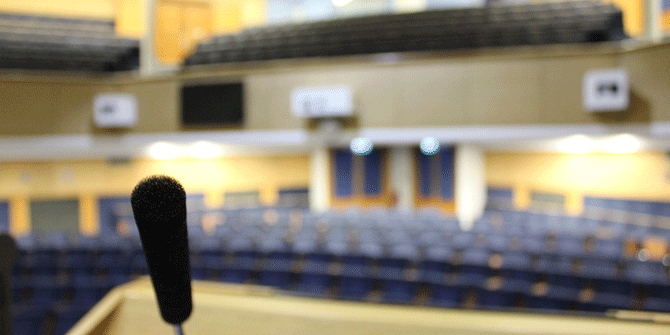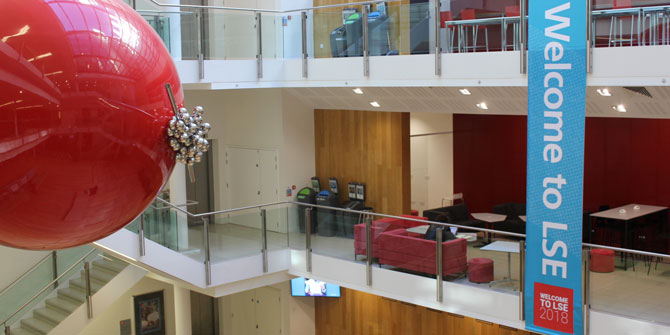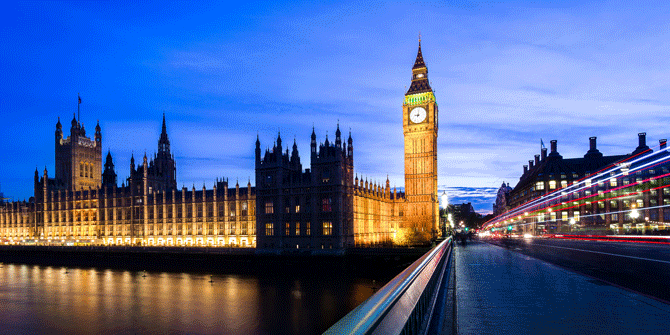Facundo Rodríguez provides an overview of his experience presenting his paper at Euroacademia’s 8th Forum of Critical Studies in Venice.
On the 24-25 January 2020, I participated in Euroacademia’s 8th Forum of Critical Studies: Asking the Big Questions Again in Venice. Beyond giving me the opportunity to visit Venice for the first time, the conference served as a propitious multidisciplinary platform where I was able to present, share, defend and test the arguments I had developed in my paper ‘Ideology and Creation in Marx´s Historical Materialism: A Problem of Justification’ which I had recently written for the Marx and Marxism course, part of the MSc in Political Theory.
The Forum of Critical Studies, one of the main events organised by Euroacademia, is a yearly multidisciplinary conference. It is an open space where graduate students with junior and senior academics share their insights on a wide range of foundational questions in the humanities and social sciences. This year’s presenters were a group of academics working on areas as diverse as Kantian philosophy, phenomenology, soviet history, philosophy of art, urbanism, political economy, critical art history and feminist epistemology, amongst other disciplines. Through this multidisciplinary approach the forum seeks to tackle the ‘big questions’ that function as bridges both between methodological traditions within academic disciplines (analytic/continental philosophy; history of political thought/argumentative political theory), as well as across academic fields (e.g. empirical social sciences/normative philosophy). Nevertheless, the forum keeps ‘smaller questions’ in high regard, taking them as starting points from where the academic dialogue can extrapolate to more general questions and answers. In fact, I see my own contribution to the conference as posing a small question within a big question discipline, i.e. political theory.
Presenting to an audience
I was the second speaker of the first panel focused on philosophical reflections on the gap between critical theory and social praxis. My paper looks into Marx’s justification of the materialist nature of his theory of history and examines Marx’s arguments to reject two non-materialist conceptions of history: an idealist conception and a creationist one. The paper claims that, while Marx succeeds in rejecting idealism, he fails to give good grounds for rejecting creationism. It finally suggests that Marx’s failure to successfully reject creationism stems from his disregard of abstract thinking in the Theses on Feuerbach and The German Ideology.
The academic experience of presenting my work in a graduate conference at an early stage in my academic career has undoubtedly been rewarding. Beyond the virtues of discussing one’s work with trained academics and senior researchers, this conference – due to its multidisciplinary nature – challenged me to present my paper in such a way that it could be appealing and engaging for both philosophers and non-philosophers. Furthermore, the feedback – a big part of presentations – has been particularly useful when coming from scholars who were unacquainted with the specifics of the debate or the literature. Some of the comments proved really helpful to develop new lines of enquiry on which I hope to work soon.
Beyond the academia
The social aspect of the forum was as enjoyable as its academic side. We were able to accompany the fantastic Italian cuisine at lunchtimes with vivid discussion on contemporary European politics, some heated debates on the Florentine and Venetian renaissance painting schools and some friendly chats on movies and TV shows. This was all within a relaxed atmosphere of friendly interchange where age, academic CV and area of expertise were as irrelevant as nationality or institutional affiliation. During one of these lunches, I was lucky to sit beside the Keynote speaker, Professor James E. Block. He was interested in discussing my presentation as he turned out to be a close friend of Professor Daniel Brudney, who is one of the main contributors to the debate and recurrently mentioned in my work. Apart from discussing the topic of my paper, we engaged in debates on the states of affairs of analytic and continental philosophy more generally and went over some new methodological approaches to philosophy coming from the US, such as Eleonor Stump’s suggestion to include literary narratives into analytical argumentation. This led to literary and philosophical conversations on the works of Jorge Luis Borges, Henry James, Oscar Wilde and a detailed analysis of Ursula Le Guin’s short story The Ones Who Walk Away from Omelas, which I had studied for my Literature and Aspects of Ethics class last year.
After the last presentation ended, I left for a stroll to see the Grand Canal. Its golden streams, supporting the ships in the glittering air, served as guidance across the stairs and into the white city. From Ponte Della Academia the incandescent silhouette of Santa Maria Della Salute was the city’s sail to the sun in its last splendour. Venice, under the imprecise light of dusk, had the elusive shape of a parting white ship about to reach the burning horizon. I reached Santa Maria del Rosario, where the steps flowing down to the still water marked the end of the streets and the beginning of the seas. Its dome, towering over the serene streams of the Giudecca canal, was like a moon over a white cliff on which the soft tides lost their strength. I returned to my small renaissance-style hotel room before darkness to get ready for the second day of conference. Through the window behind my desk I could see the Ponte Della Academia disappearing into the night as an opaque cloud lingered over the canal. Under it, Venice vanished in the jet-black depths of the Grand Canal. As I reflected on my day, I went to sleep knowing that an academic career was something I would pursue and that this wouldn’t be my last conference.
Facundo’s conference fee was funded by the LSE Department of Government.
Note: this article gives the views of the authors, and not the position of the LSE Department of Government, nor of the London School of Economics.
Image credit: Henrique Ferreira on Unsplash




